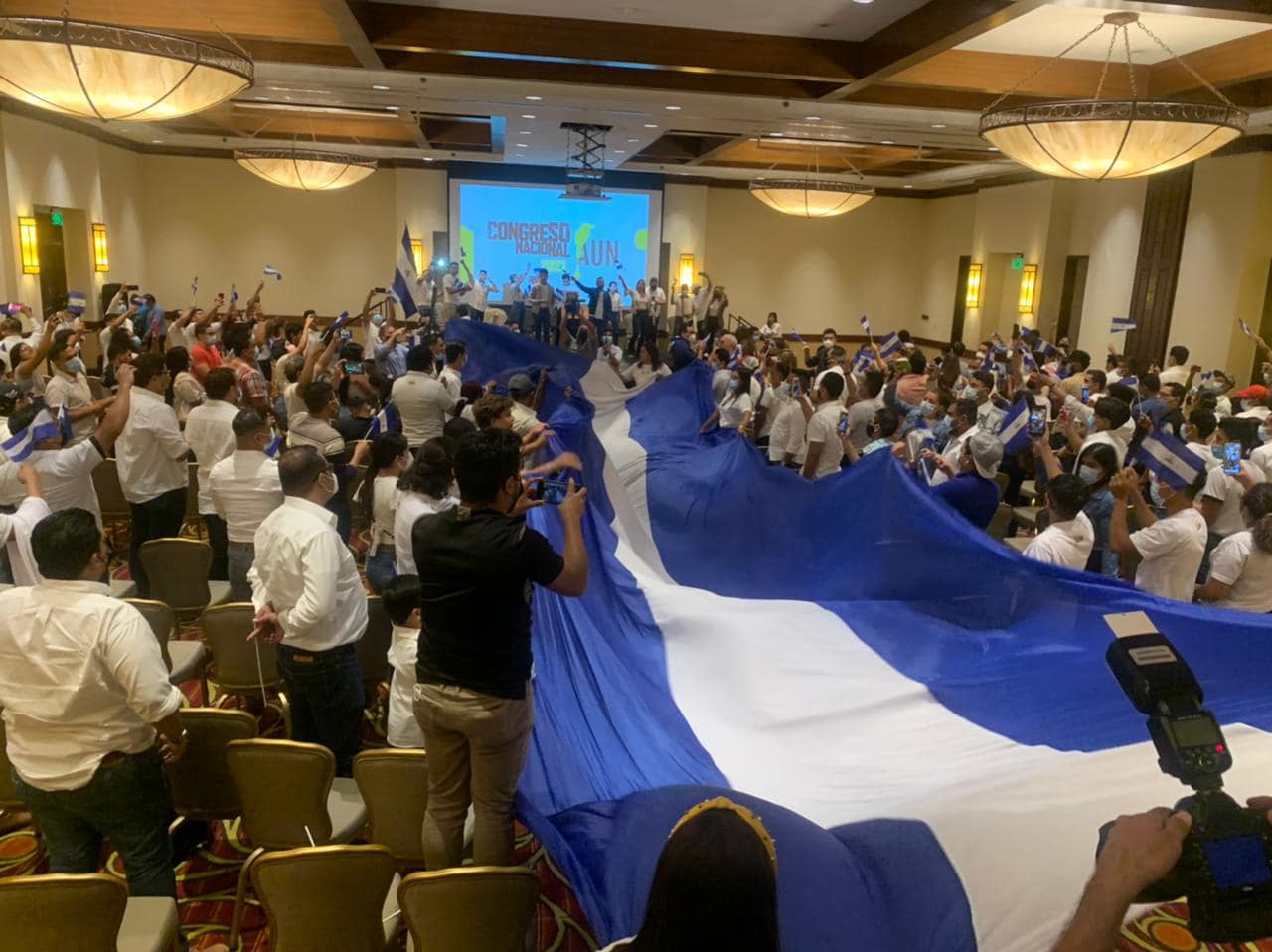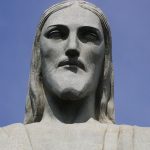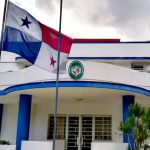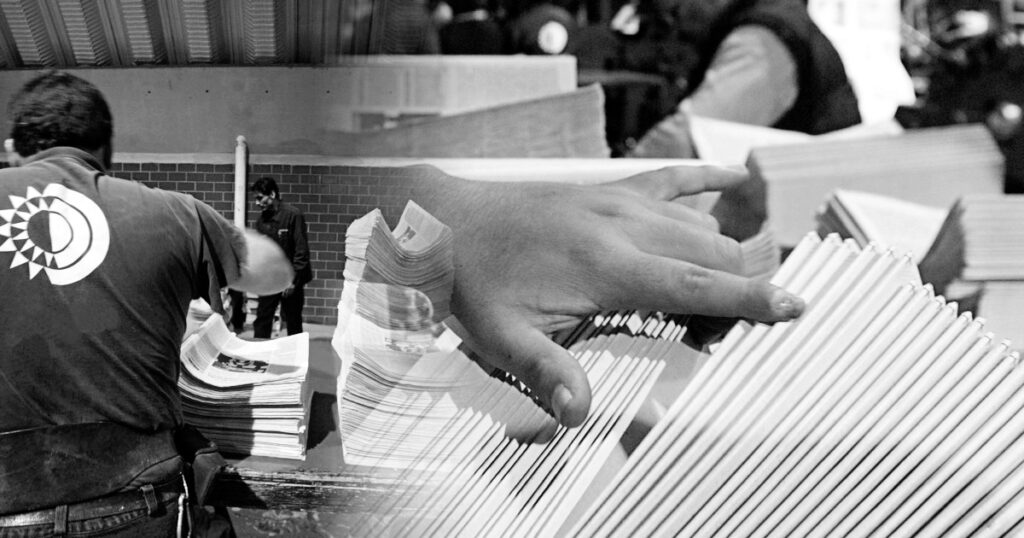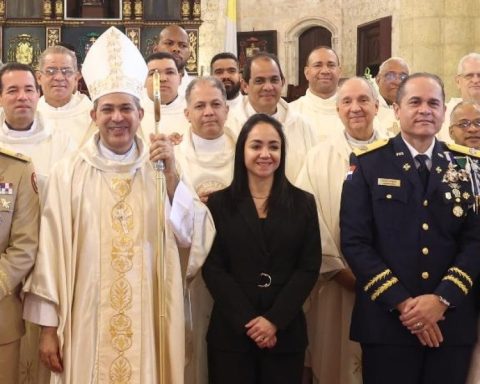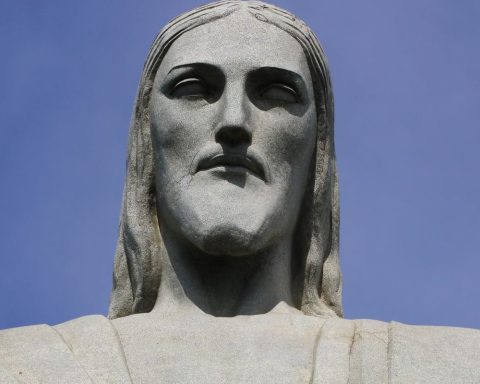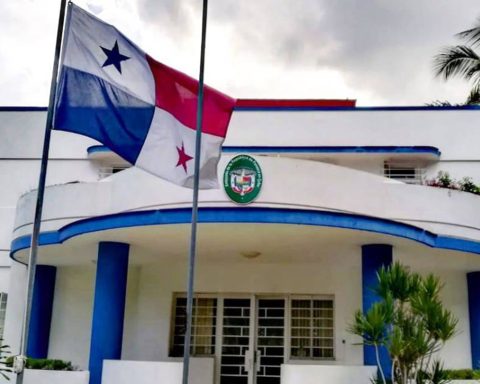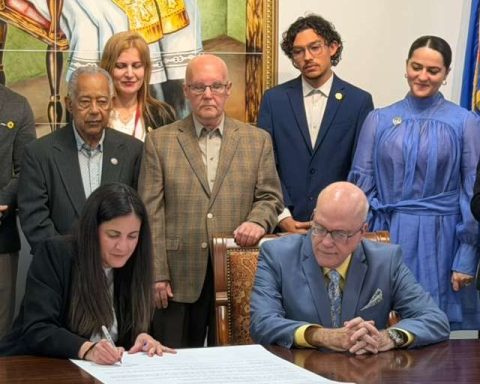Cinthya Benavides was forced to leave her country, Nicaragua. The police harassment in her home, the threats against her physical integrity and an imminent arrest were enough to leave everything of her in her native Chinandega. The 27-year-old is one of the 34 members of the Nicaraguan University Alliance (AUN), who have gone into exile due to the worsening political persecution of the Ortega regime in the last two years.
“It is different to emigrate due to economic necessity, because you have a relative here who will receive you. It is different from having to go into exile because you have to protect your life first and foremost,” says Benavides from the United States, where he arrived after eleven days of walking along paths to turn himself in to immigration authorities.
AUN brings together some 1,200 young people and is part of the Civic Alliance for Justice and Democracy, one of the Nicaraguan opposition organizations. Benavides, a territorial leader, points out that police harassment has been escalating since 2021, when Daniel Ortega ordered the hunt for some 40 social, political and union leaders, including Lesther Alemán and Max Jeréz.
During the tours of the young people in the departments of the country, they were subjected to police checkpoints. They detained them for hours and searched exhaustively; the meetings were besieged and in the specific case of Benavides, his house was painted with insults. His Tik Tok account, through which he questioned the regime’s abuses of power and raised awareness of the importance of mental health, was sabotaged.
She began to receive death threats through calls, in which they insulted her as “selling homeland” and “coup plotter”, and finally, they told her that she could be arrested, so she took shelter for a while until she left the country. “I was hidden for two weeks, it didn’t even come out for sale,” says the young woman.
Benavides joined the “excursions” of hundreds of Nicaraguan migrants who aspire to reach the United States to improve their quality of life, after four years of sociopolitical crisis, aggravated by the de facto police state and unemployment. “My dream was to live in a developing Nicaragua, to live in a Nicaragua with democracy,” laments Benavides from his exile.
Photo: courtesy
“I was very scared -regarding the trip-, but it didn’t compare to imagining being imprisoned,” she stresses. On October 12 she left. She lived days when she didn’t eat or drink anything. “There was a time when you couldn’t breathe any longer,” she recalls. She turned herself in on October 23 recently and was sent to a jail in San Diego, California, where she spent two days.
From exile, he actively participates in international forums denouncing the abuses of the Ortega-Murillo dictatorship, such as the recent imprisonment of Mildred Rayo and Miguel Floresmembers of the opposition youth organization.
AUN points out that of the 34 members in exile, the majority left in 2021, after the repressive escalation in the electoral context, and about 12 have left the country during 2022. “They have been exiled for political reasons, due to the persecution, threats and lack of opportunities for young people in the country, many of them exercised departmental and municipal coordination,” said a source from the organization.
Most of its members still remain in Nicaragua, but with a “low profile, hoping to get out of this regime,” he said. For Benavides there should be no difference between those who decide to leave and those who stay, since both situations imply survival and resistance.
From Waslala to United States
Jerry Urbina is another of the 34 exiled young people from AUN. He said goodbye to his family on January 5, 2022. He traveled from Nicaragua to the United States irregularly, because a source assured him that he had immigration restrictions. The young man, who worked as the departmental secretary of the Civic Alliance in Matagalpa, became a visible face within the opposition, causing more police harassment and prison threats from Daniel Ortega’s regime.
On July 5, 2020, a contingent of 20 riot police raided his house, in Waslala, where he is originally from; They allegedly accused him of distributing money and weapons among the opposition in Matagalpa. A pool table was also confiscated. The harassment continued to escalate. Urbina, 24, decided to leave the country after Ortega annihilated any peaceful solution to the sociopolitical crisis, by sustaining the electoral farce that guaranteed him to remain in power for a new term.
The last attack against Urbina occurred on December 17, when men in a truck followed him, but he escaped. Upon arriving in the United States, he faced the asylum application process from prison, where he remained for six months.
Emotionally it has been hard, be honest. “It’s very different to say I’m leaving because I’m going to find a way to work, to say I’m leaving because they can kill me.” For Urbina there are two types of migrants, those who leave for better job opportunities and others like him, “who have to decide between leaving or staying with the risk of being imprisoned or dying.”
Both Benavides and Urbina continue to denounce internationally the abuses committed by Ortega, which has generated an unprecedented exodus, one of the main affected being young people. For that reason, AUN has launched the campaign “Hope without borders”to make visible the impact that migration is having on Nicaraguan youth.
“The pain of saying goodbye to a mother, brother or friend also becomes the hope of a dignified life, goals fulfilled and dreams achieved,” they underline.
